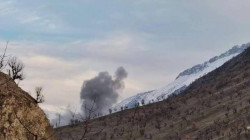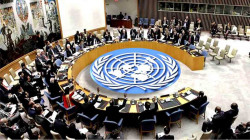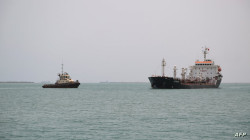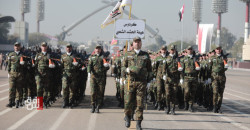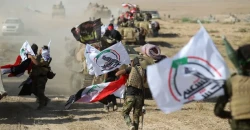Red Sea Conflict: Yemen strikes raise fears in Iraq
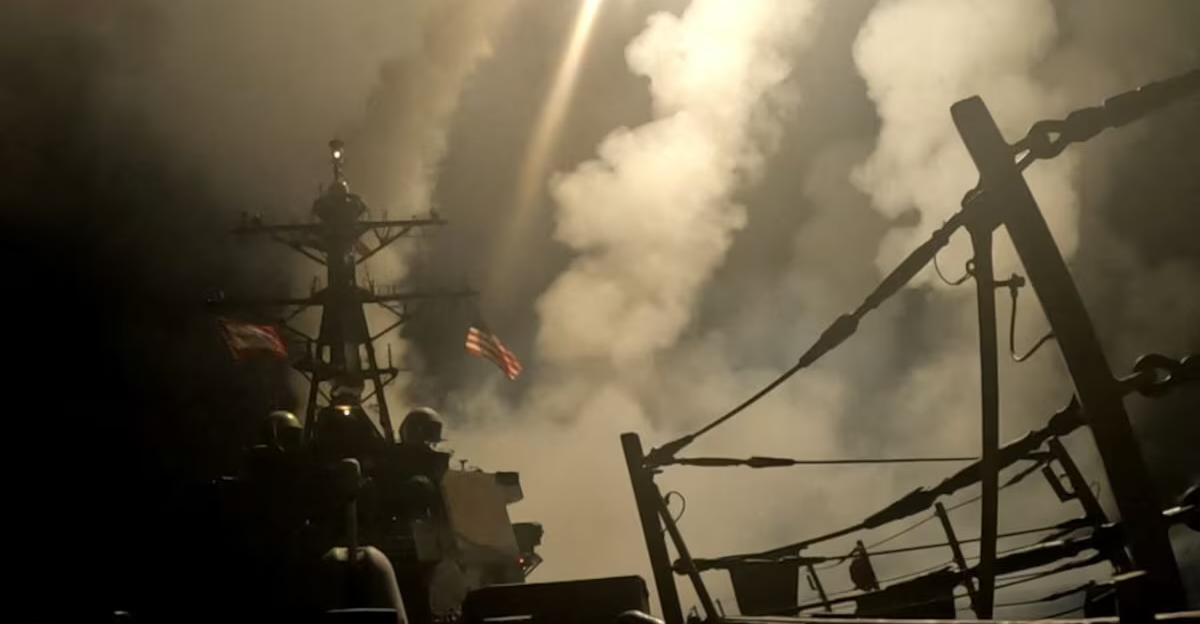
Shafaq News/ The ongoing US military campaign against Yemen’s Ansarallah (Houthis) marks a significant escalation in Washington’s efforts to counter Iran’s regional allies. This move aligns with President Donald Trump’s "maximum pressure" strategy aimed at curbing Iranian influence and protecting US interests.
The recent airstrikes and missile operations in Yemen are seen as part of a broader military approach, potentially setting the stage for similar actions elsewhere, with Iraq often cited as a possible next target due to its strategic significance and ties to Iran-aligned factions.
US Actions Vs Houthis’ Aim
On Saturday night, President Trump authorized a "decisive" military operation against the Houthis following a series of escalating attacks on Red Sea shipping lanes. These included missile strikes on commercial and military vessels. The US strikes were meant to send a strong message to the Houthis, Iran, and their regional allies about Washington’s commitment to safeguarding global maritime trade.
The coordinated assault, carried out by US naval and air forces, targeted key military installations, including air defense systems, missile launch sites, and radar stations. More than 60 precision-guided munitions were deployed in the first wave, destroying multiple Houthi assets.
However, the operation came at a human cost. Anis Al-Asbahi, spokesperson for the Houthi-controlled health ministry, reported 31 civilian deaths and 23 injuries, mostly women and children, in Saada and Sanaa provinces.
Hamed Al-Bukhaiti, head of the Al-Huda Centre for Strategic Studies in Yemen called the strikes "criminal behavior," accusing the US of exploiting maritime security as a pretext for expanding its regional agenda. He further accused Washington of aligning with Israel, which he referred to as part of the "Zionist entity."
Despite diplomatic efforts to ease the tensions through channels such as Oman and the United Nations, the escalation has not stopped since October 2023.
The Houthis’ maritime blockade and repeated attacks on Red Sea shipping lanes extend beyond military strategy; they represent a broader effort to challenge US and Israeli influence in the region. The Houthis frame their actions as part of a wider resistance against Israeli occupation of Palestinian territories and military operations in Gaza.
The blockade, initiated in December 2023, primarily targets Israeli-linked vessels in the Red Sea, Bab al-Mandeb, and the Gulf of Aden. Hamed Al-Bukhaiti reaffirmed Yemen's unwavering support for Palestine, despite mounting pressure from the US and its allies.
Their actions have already led to a 30% increase in global shipping costs as insurers raise premiums for vessels transiting the region.
As the US military operation in Yemen unfolds, its repercussions are being felt beyond its borders, particularly in Iraq, where new armed factions have emerged.
New Groups Emerge
Groups like the Abbas Martyrs’ Shield Brigade and the Jerusalem Cry Brigades have vowed to confront US forces in the Middle East. Aligned with Iran-backed forces, these factions have declared a "jihad" in defense of Yemen and against perceived US aggression.
The Abbas Martyrs’ Shield Brigade has pledged to “protect Iraq and its faith,” urging members of the Popular Mobilization Forces (PMF) to join their cause. Meanwhile, the Jerusalem Cry Brigades, part of the Axis of Resistance, has threatened US interests across the Middle East, vowing retaliation for the Yemen strikes.
Shiite armed groups in Iraq, many of them within the PMF, view the US attacks on Yemen as part of a larger campaign against the Axis of Resistance. Leaders from factions such as Kataib Hezbollah and Asaib Ahl al-Haq have warned that Iraq could be drawn into the conflict if US military actions expand. These groups, closely linked to Iran, have intensified their rhetoric against American forces in Iraq and Syria.
These groups, along with established forces like Kataib Hezbollah and Harakat al-Nujaba, possess the capability to launch sophisticated attacks on US military bases in Iraq and Syria. While US officials have warned of decisive retaliation for any assault on American personnel, such responses risk deepening Iraq’s entanglement in the broader regional conflict.
The Pentagon estimates approximately 2,500 US troops remain stationed in Iraq, with another 900 in Syria, making them prime targets for escalation.
Analysts caution that if the conflict in Yemen intensifies, these forces could coordinate with Iran to open new fronts against US forces, stretching American military resources.
Jalal Jaraghi, an expert on Iranian and regional affairs, observed, "Iraq will not remain a spectator if US aggression continues. The Shiite resistance groups have a clear strategy of responding to threats against their allies."
Michael Knights, a senior fellow at The Washington Institute, highlighted the growing capabilities of these armed forces, noting that "Iran-backed groups in Iraq have acquired advanced weaponry, including short-range ballistic missiles and armed drones, making them a formidable threat to US forces."
Geopolitical Fallout
The political implications are far-reaching. Iraqi Prime Minister Mohammed Shia Al-Sudani faces pressure from both the US and pro-Iran factions demanding a tougher stance.
The prospect of US strikes against Iran-aligned groups in Iraq remains a major concern, as such actions could destabilize the fragile political environment and provoke confrontations between US forces and pro-Iranian forces in Iraq.
The Axis of Resistance, despite setbacks following the 2024 Israel conflict, remains a significant force. Analysts like Jalal Jaraghi argue that US actions in Yemen will prove costly. "The US is expanding Israel’s influence in the region despite its repeated violations of international laws," he stated, emphasizing the growing scope of US interventions across Syria, Yemen, Palestine, and Lebanon.
Jordanian analyst Hazem Ayad criticized the US’s approach, suggesting it highlights the failure of Trump’s diplomatic efforts. "This demonstrates the limits of diplomacy, which has given way to military force. Trump’s de-escalation strategy has failed, exacerbating regional tensions and impacting both the Palestinian cause and US relations with regional powers."
Ihsan Al-Shammari, head of the Iraqi Political Thinking Centre, warned that the emergence of new armed groups could destabilize Iraq and provoke further US military action. He pointed to recent discussions between Prime Minister Al-Sudani and US Secretary of State Marco Rubio as a sign that Washington may soon increase pressure on Iraq.
Moreover, sources told Shafaq News Agency that the US Defense Secretary Pete Hegseth delivered a stern warning to Shia Al-Sudani during yesterday’s phone call.
According to the sources, Hegseth made it clear that any interference by Iraqi armed groups in the US military campaign against Yemen’s Ansarallah would trigger “a swift military response” from Washington, urging Al-Sudani to prevent such actions, citing past instances of Iraqi faction involvement in conflicts in Lebanon and Gaza.
The US official also pressed Al-Sudani to “expedite efforts to disarm and dismantle these factions,” emphasizing that the issue is of high importance to President Trump and his administration. In response, Al-Sudani reportedly assured Hegseth that his government is actively engaging with armed groups to resolve the matter.

